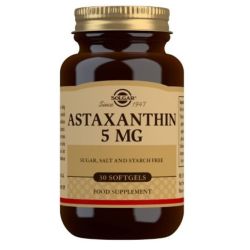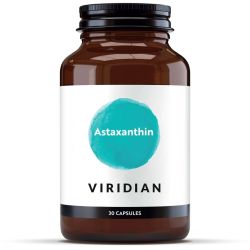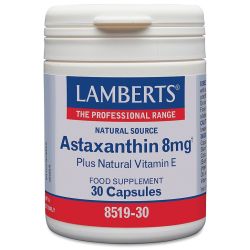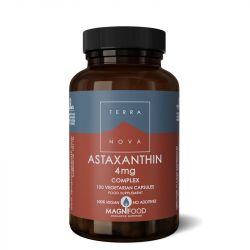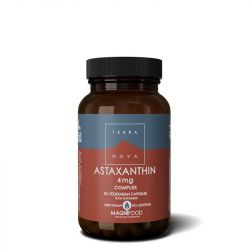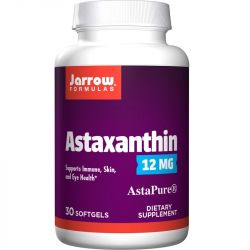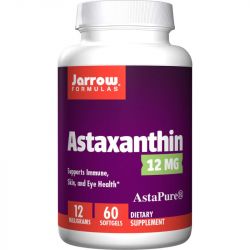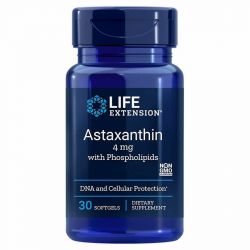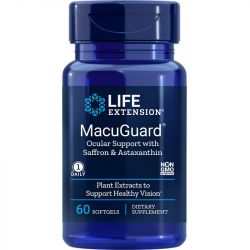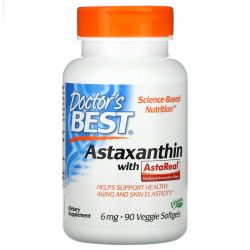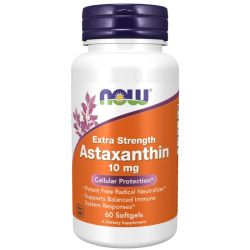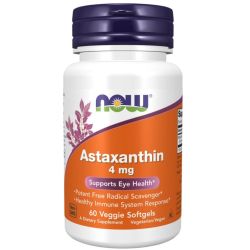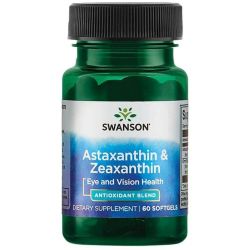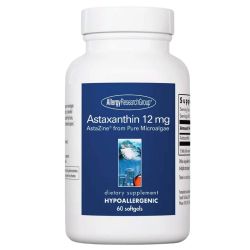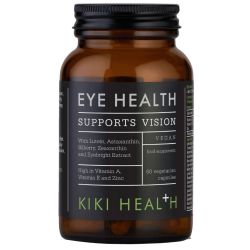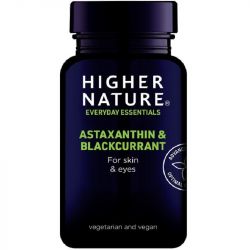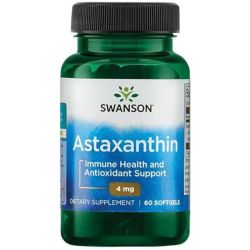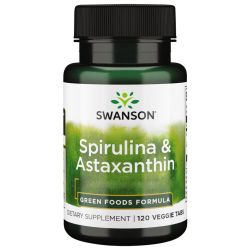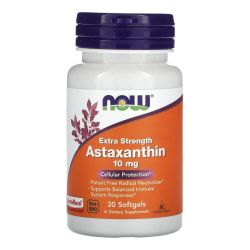Astaxanthin Supplements
Astaxanthin is a potent antioxidant and natural carotenoid derived from microalgae, recognised for its ability to combat oxidative stress and protect cells from free radical damage. Known as the "king of antioxidants," it is up to 6,000 times stronger than Vitamin C, making it one of the most effective antioxidants available.
Astaxanthin is widely valued for its benefits to eye health, helping to reduce eye strain and support vision, as well as its role in boosting immunity and promoting skin health by reducing signs of ageing. Additionally, it may help to support muscle endurance, recovery, and cardiovascular health, making it a comprehensive supplement for those seeking targeted protection.
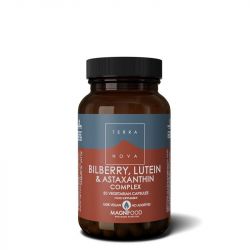 Terranova Bilberry, Lutein & Astaxanthin Complex Vegicaps 50Special Price £19.04 Regular Price £23.80
Terranova Bilberry, Lutein & Astaxanthin Complex Vegicaps 50Special Price £19.04 Regular Price £23.80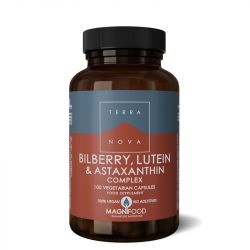 Terranova Bilberry, Lutein & Astaxanthin Complex Vegicaps 100Special Price £34.36 Regular Price £42.95
Terranova Bilberry, Lutein & Astaxanthin Complex Vegicaps 100Special Price £34.36 Regular Price £42.95
All you need to know about Astaxanthin
What is astaxanthin supplement used for?
Astaxanthin is a natural antioxidant supplement used to combat oxidative stress, reduce inflammation, and support overall health. It is commonly taken to improve skin health, enhance eye health by reducing eye strain and preventing age-related macular degeneration (AMD), and boost immune function. Studies have also linked astaxanthin to benefits for cardiovascular health, brain health (including Alzheimer’s prevention), and joint health by reducing inflammation associated with arthritis.
Who should not take astaxanthin?
While astaxanthin is generally considered safe, it is not recommended for individuals with allergies to shellfish or seafood, as it is often derived from marine sources. Pregnant or breastfeeding women should consult a healthcare professional before use. People with autoimmune diseases should also seek medical advice, as its immune-boosting properties may overactivate the immune response in some cases.
What are the side effects of astaxanthin tablets?
Astaxanthin is well-tolerated by most individuals, but mild side effects may include digestive discomfort, changes in stool colour, or a slight reddish tint to the skin (due to its pigment). High doses could potentially lower blood pressure or blood sugar levels, so people with low blood pressure or diabetes should monitor their levels and consult a doctor before starting supplementation.
Can astaxanthin help with skin health?
Yes, astaxanthin is a popular supplement for anti-ageing and skin health. Studies show it reduces UV damage, boosts skin elasticity, and promotes hydration, making skin look smoother and more radiant. It also neutralises free radicals that cause premature ageing.
Does astaxanthin improve heart health?
Astaxanthin has been shown to support cardiovascular health by reducing inflammation, improving cholesterol levels, and enhancing blood vessel function. Studies suggest it may lower LDL cholesterol and increase HDL cholesterol, reducing the risk of heart disease.
Is astaxanthin good for joint health?
Yes, astaxanthin’s anti-inflammatory properties make it beneficial for people with arthritis or other joint conditions. It helps reduce joint stiffness and pain, improving mobility and overall joint function.
Does astaxanthin support brain health?
Astaxanthin can cross the blood-brain barrier, providing antioxidant protection to the brain. Research indicates it may help prevent neurodegenerative diseases like Alzheimer’s and Parkinson’s, reduce cognitive decline, and improve mental focus and memory.
How does astaxanthin benefit eye health?
Astaxanthin is especially effective in promoting eye health, protecting against oxidative stress in the retina and reducing the risk of age-related conditions like macular degeneration and cataracts. It also alleviates digital eye strain caused by prolonged screen use.
Is astaxanthin safe to take long-term?
Yes, studies indicate that astaxanthin is safe for long-term use when taken within the recommended dosage (usually 4-12 mg daily). It does not accumulate in the body and provides ongoing benefits for antioxidant protection, immunity, and cellular health.

